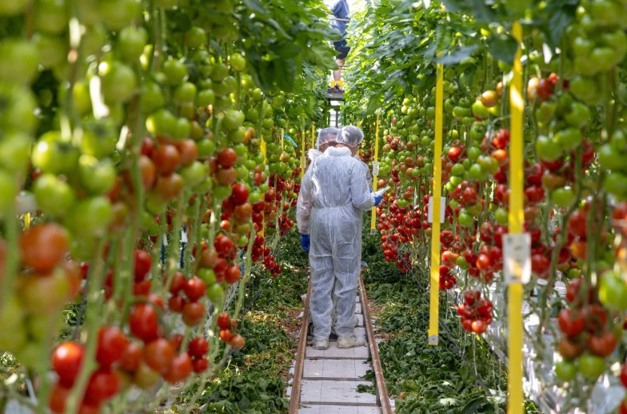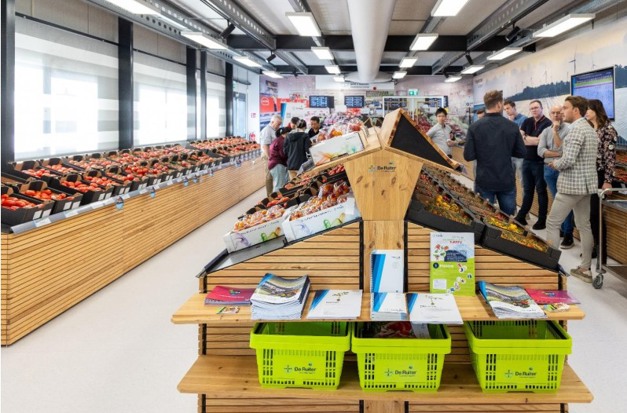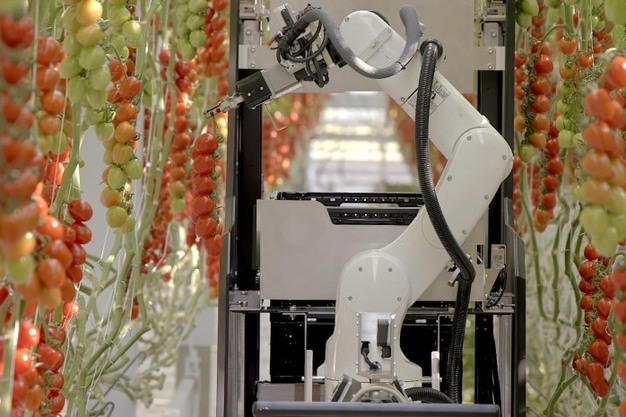Bayer welcomed more than 300 visitors from around the world to the De Ruiter Experience Center (DEC). Many of them were also visiting the GreenTech horticulture technology exhibition, which took place simultaneously in Amsterdam. The De Ruiter Experience Center is a trial and demonstration center highlighting approximately 300 tomato varieties under practical growing conditions. During visits, customers could see experimental ToBRFV-resistant tomato varieties for all major types including, plum, cherry, snack, and vine tomatoes.

Local growers from the Netherlands, as well as growers from further afield including North and South America, Asia, and Europe had the opportunity to participate in sessions discussing pressing industry issues. "For us, this was an opportunity to share our knowledge but also a chance to learn a great deal," said De Ruiter Experience Center's manager John van der Knaap. "In horticulture, partnership among different parts of the supply chain is essential, and it starts with information exchange."
"The ToBRFV virus challenge remains the number one topic in our customer's minds and so it was understandable that our ToBRFV-resistant varieties received the most attention from visitors. Throughout 2024 we have more than 100 trial locations in several European countries, covering fruit types such as cherry plums for loose packs, round cherry trusses, and pink beef. We have many more trials planned globally with these products, and we have already trialed medium and large truss types, rootstocks, and cocktail plum varieties."

Investment in ToBRFV quarantine glasshouse
Jan Barten, ToBRFV Project Lead, explains, "To gain full control over its phytosanitary arrangements, Bayer has invested heavily in research. For example, we have built a greenhouse in Wageningen where varieties are manually mix-infected (PepMV and ToBRFV) and where adult plants and fruits are evaluated. The facility has a considerable capacity and is suitable for commercial, long-term tomato cultivation, similar to the conditions in commercial glass greenhouses. It's a challenging task because ToBRFV is an officially recognized quarantinable disease, so the facility must meet strict phytosanitary standards. However, there are several benefits. For example, we can now see how varieties respond to infection under stress, and we can study the effects at a plant and fruit level."

Certhon and De Ruiter hosted an exclusive visit to see Artemy, the newest harvest robot, in action during GreenTech
On the final day of GreenTech, June 13th, the De Ruiter Experience Center, in collaboration with Certhon, hosted an exclusive morning visit to see one of the most recent groundbreaking advances in horticultural technology. Bayer Crop Science believes in robotization, with experience of successes in transplanting and sorting robots, harvest is the next step. "Our belief is that the ultimate goal of developing agricultural technology is to make producers' lives easier, farming practices more efficient and to increase productivity using fewer resources. As technology scales up and standardization makes it more affordable, growers are beginning to adopt these technologies to streamline operations, reduce labor costs, and address labor shortages. Working with carefully chosen partners such as Certhon/Denso we want to be at the forefront of the development process. On the one hand we are sure the technology meets the farmer's needs and challenges working with plant genetics. On the other hand in order to understand how the technology fits and how we can adapt our pipeline to create synergy keeping in mind the plant genetics that will be key to consumer and grower needs."
This event provided an exciting opportunity for attendees to witness the cherry tomato harvesting robot, Artemy, in action and learn more about De Ruiter.
More to the De Ruiter Experience Center than tomatoes
At the De Ruiter Experience Center (DEC) in Bleiswijk, one section allows tomatoes to be tested under high-tech illuminated conditions, while another allows testing under non-illuminated conditions. This versatility emphasizes the breadth of Bayer's product portfolio for the growing segment of illuminated tomato cultivation.
In 2022, the DEC was expanded with a state-of-the-art glasshouse for cucumbers. This further strengthens our already robust pipeline and means even more elements of glasshouse horticulture can be explored at the DEC, which now covers more than 15,000 m2 of glass.
Visitors this week could also learn and taste for the first time strawberries at Malling Centenary. The strawberry crop has been added to the DeRuiter portfolio from January 1, 2024.
The addition of strawberries to Bayer's portfolio represents the natural progression that many of our customers are also making. As year-round demand for strawberries from consumers and retailers increases, protected culture growers are also expanding strawberry production. "The addition of strawberries therefore allows us to align our product offering with key growth opportunities for our customers."

For more information:
Bayer Vegetable Seeds
www.vegetables.bayer.com
